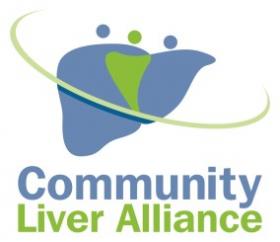
A Liver Update: The Relationship Between the abuse of Opioid Medications and Liver Disease
The opioid epidemic has taken a toll individual lives, communities and our healthcare system and is an immediate healthcare emergency. The relationship between the abuse of opioid medications and liver disease is not understood among the provider population. Understanding and navigating effectively these off-setting circumstances will be critically important for providers and the community. The rising rates of opioid misuse coincide with a rise in viral hepatitis, particularly in young people, and in the increase in severity of liver disease across all age groups. Rates of hepatitis C (HCV), which can be spread between opioid users injecting drugs intravenously, are skyrocketing. HCV is 5 times as infectious as HIV, for example. Chronic HCV can lead to cirrhosis, liver cancer, transplant, and eventually death. It also puts patients at higher risk for developing other liver diseases, like fatty liver disease and nonalcoholic steatohepatitis. There is also a link between overdose deaths and the rise in available livers for transplantation. Harm reduction is more than a syringe service program and we need to mobilize to support our communities in the face of this Syndemic.
The goal of this course module is to help clinicians and other service providers understand the local and regional picture of addiction as it relates to liver health and diseases including, viral hepatitis, understand HCV screening recommendations, current treatment options, HIV/HCV coinfections, transplantation and organ donation implications, sexually transmitted diseases and specific issues with vulnerable populations especially and the opioid use disorder epidemic including adolescence, pregnant women and people who use drugs.
Target Audience
This program is directed to primary care physicians, specialists (ID, Gastro, Hepatology, Transplant, Addiction ), nurses, public health, Drug and Alcohol counselors, care coordinators, advocates and other allied health care workers involved in the healthcare of patients who have risk factors for Hepatitis C particularly people who use drugs.
Learning Objectives
At course completion, attendees should be able to:
Performance
Take an evidence-based approach to understanding substance use disorders and its effect on liver health.
Competency
Address addiction as a chronic medical illness and harmful drug use as a personal and public health problem in all contexts. Make referrals for specialty treatment of addiction and other medical and psychiatric conditions.
Increase Knowledge
Obtain core medical knowledge about substance, substance use substance-related health conditions, and common co-occurring disorders.
Additional Information
| Attachment | Size |
|---|---|
| 180.25 KB |
SCHEDULE
5:00 p.m.
Registration/Networking/Exhibits/Dinner
5:50 p.m.
Welcome
Suzanna Masartis
Executive Director
Community Liver Alliance
Pittsburgh, PA
6:00 p.m.
The Relationship Between Viral Hepatitis and the Opioid Epidemic
Lauren Canary, MPH
Executive Director
National Viral Hepatitis Roundtable
Washington, DC
6:20 p.m.
Harm Reduction: More than Syringe Services
Lauren Canary, MPH
Executive Director
National Viral Hepatitis Roundtable
Washington, DC
6:40 p.m.
Hepatitis C Screening During Pregnancy
Yasaswi Kislovskiy, MD
UPMC Magee Women’s Hospital
Pittsburgh, PA
7:00 p.m.
Pennsylvania Viral Hepatitis Elimination Update
Suzanna Masartis
Executive Director
Community Liver Alliance
Pittsburgh, PA
7:20 p.m.
The Role of Transplantation and Organ Donation
Rachel Tindall, MD
Allegheny Health Network
Pittsburgh, PA
7:40 p.m.
HCC on the Rise
Dulabh Monga, MD
Program Director
Hematology Oncology Fellowship
Assistant Professor of Medicine Temple University School of Medicine
Allegheny Health Network
8:00 p.m.
Alcoholic Liver Disease
Ramon Bataller, MD, PhD
Chief of Hepatology
UPMC Center for Liver Diseases
Pittsburgh, PA
8:20 p.m.
Updates in Liver Research
Satdarshan (Paul) Monga, MD
Director
Pittsburgh Liver Research Center
Pittsburgh, PA
8:40 p.m.
Panel Discussion
Moderator - Kelly Martin, CRNP
Community Liver Alliance
Pittsburgh, PA
9:00 p.m.
Adjourn
Suzanna Masartis
Executive Director
Community Liver Alliance
Pittsburgh, PA
Lauren Canary, MPH
Executive Director
National Viral Hepatitis Roundtable
Washington, DC
Yasaswi Kislovskiy, MD
UPMC Magee Women’s Hospital
Pittsburgh, PA
Rachel Tindall, MD
Allegheny Health Network
Pittsburgh, PA
Dulabh Monga, MD
Program Director
Hematology Oncology Fellowship
Assistant Professor of Medicine Temple University School of Medicine
Allegheny Health Network
Ramon Bataller, MD, PhD
Chief of Hepatology
UPMC Center for Liver Diseases
Pittsburgh, PA
Satdarshan (Paul) Monga, MD
Director
Pittsburgh Liver Research Center
Pittsburgh, PA
Kelly Martin, CRNP
Community Liver Alliance
Pittsburgh, PA
Faculty Disclosure:
All individuals in a position to control the content of this education activity including members of the planning committee, speakers, presenters, authors, and/or content reviewers have disclosed all relevant financial relationships with any entity producing, marketing, re-selling, or distributing health care goods or services, used on, or consumed by, patients.
The following relevant financial relationships were disclosed:
Paul Monga, MD, receives Grant Research Support from Abbvie Pharmaceuticals and is a consultant for Abbvie Pharmaceuticals. Cognizant Communications this information isn’t disclosed on his COI form.
Ramon Bataller, MD, PhD, Paid Seminar, Echosens.
No other planners, members of the planning committee, speakers, presenters, authors, content reviewers and/or anyone else in a position to control the content of this education activity have relevant financial relationships to disclose.
In support of improving patient care, this activity has been planned and implemented by the University of Pittsburgh and the Community Liver Alliance. The University of Pittsburgh is jointly accredited by the Accreditation Council for Continuing Medical Education (ACCME), the Accreditation Council for Pharmacy Education (ACPE), and the American Nurses Credentialing Center (ANCC), to provide continuing education for the healthcare team.
The University of Pittsburgh School of Medicine designates this live activity for a maximum of 3.0 AMA PRA Category 1 Credits™. Physicians should claim only the credit commensurate with the extent of their participation in the activity.
Other health care professionals will receive a certificate of attendance confirming the number of contact hours commensurate with the extent of participation in this activity.
Available Credit
- 3.00 AMA PRA Category 1 Credit™The University of Pittsburgh School of Medicine is accredited by the Accreditation Council for Continuing Medical Education to provide continuing medical education for physicians.
- 3.00 Attendance

 Facebook
Facebook X
X LinkedIn
LinkedIn Forward
Forward